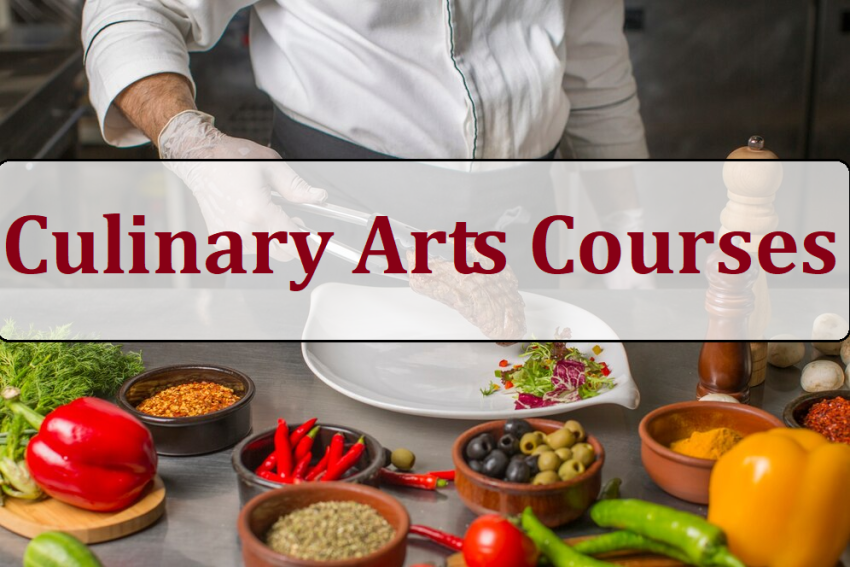Introduction: The Allure of Culinary Arts
The world of culinary arts is an enchanting realm where passion meets profession. This field, blending creativity, passion, and skill, attracts many towards a vibrant career in the kitchen and beyond. The journey from a simple love for cooking to becoming a professional chef is both exhilarating and challenging, filled with flavors, techniques, and endless learning.
Unveiling the World of Culinary Arts
Culinary arts isn’t just about cooking—it’s a mix of techniques, baking, gastronomy, and management. Culinary arts colleges in Kolkata and other cities offer programs diving into these specialties.
A. Culinary Techniques
In the world of culinary arts, it all starts with mastering cooking techniques. From the basics like grilling and roasting to advanced skills like sous-vide and fermentation, knowing these methods is key for any budding chef.
B. Baking and Pastry Arts
Dive into the world of baking, where the artistry extends to bread, pastries, cakes, and delightful confections. Precision and creativity take the spotlight, making it a go-to for folks with an eye for detail and a love for all things sweet.
C. Gastronomy
Gastronomy is the art and science of food. It involves understanding flavors, food science, and even the cultural aspects of food. This branch goes beyond cooking, exploring the deeper aspects of what we eat and why.
D. Culinary Management
For those interested in the business side of food, culinary management covers topics like menu planning, restaurant management, and food service operations. It’s ideal for aspiring restaurateurs and culinary entrepreneurs.
Why Pursue Culinary Arts Courses
Today, chefs go beyond the kitchen; they’re artists, innovators, and entrepreneurs. The culinary field opens doors to various careers, from restaurant chefs to food stylists and culinary instructors. Culinary education is the key to unlocking creativity, providing a structured space to experiment with flavors, textures, and techniques.
A. The Evolving Role of Chefs
No more hiding in the kitchen’s shadows! Chefs nowadays are rockstars – celebrated, influential, and trendsetting. The modern chef is a mix of talent, creativity, and business smarts.
B. Career Opportunities in the Culinary Industry
The culinary industry offers a wide array of career paths. Apart from traditional roles like chefs and bakers, there are opportunities in food styling, culinary writing, and even research and development in food companies. The industry is dynamic, with new roles emerging as the food culture evolves.
C. Unleashing Creativity Through Culinary Education
Cooking school is more than just memorizing recipes; it’s about grasping the principles of cooking and baking. It pushes students to play around, get creative, and find their own culinary groove.
Choosing the Right Culinary Course
Selecting the right culinary course is crucial to one’s career in the culinary world. The choice depends on individual interests, career goals, and the level of expertise one wishes to achieve.
A. Different Levels of Culinary Courses
In the world of culinary education, there’s a course for everyone, from beginners to master chefs. You can kick off with basic programs teaching fundamental cooking skills, and as you advance, there are specialized courses like gastronomy or culinary management waiting for you.
Specializations in Culinary Education
Specializations allow students to focus on their area of interest. Whether it’s baking, culinary arts, or management, each specialization offers in-depth knowledge and skills training in that particular field.
Considering Online vs. On-site Courses
With the advent of technology, many culinary schools, including some of the best culinary schools in India, offer online courses. These are ideal for those who require flexibility. However, on-site courses offer hands-on experience and direct mentorship, which are invaluable in culinary education.
Building the Culinary Foundation
The foundation of any culinary career is built on mastering fundamental techniques and understanding the science behind cooking.
A. Mastering Fundamental Culinary Techniques
Basic cooking techniques are the building blocks for any chef. A thorough understanding and practice of these techniques are essential for success in the culinary field.
B. Knife Skills and Kitchen Safety
Knife skills are one of the first and most important skills taught in culinary courses. Alongside, kitchen safety is paramount, ensuring a safe and efficient working environment.
C. Understanding the Science Behind Cooking
Cooking isn’t just about flavors and recipes; it’s a bit of a science too. For any culinary pro, grasping the science behind cooking techniques, how ingredients mingle, and the impact of various cooking methods is key.
Culinary Specializations
Specializations within culinary arts allow individuals to focus on a specific area of interest.
A. Baking and Pastry Arts
This specialization is for those who are passionate about baking. Courses focus on the techniques of baking various bread and pastries, decoration, and presentation.
B. Gastronomy
Gastronomy courses delve into the science and culture of food. It covers topics like food history, flavor science, and even molecular gastronomy.
Beyond the Kitchen: Culinary Management
Culinary management is a key area for those interested in the business aspect of the culinary world.
A. Menu Planning and Design
An essential skill for any culinary manager or restaurant owner, menu planning involves understanding customer preferences, pricing, and designing menus that appeal to a target audience.
B. Restaurant Management Essentials
These courses teach the essentials of running a successful culinary business, including staff management, service operations, and financial management.
C. Navigating the Business Side of the Culinary World
Understanding the business side of the culinary industry is crucial for anyone looking to open their restaurant or culinary venture.
Real-world Experience
Hands-on experience is a critical component of culinary education.
A. Culinary Internships
Many culinary courses include internships, which provide students with real-world experience in professional kitchens.
B. Apprenticeships in Professional Kitchens
Apprenticeships offer an opportunity to work under experienced chefs and learn the day-to-day workings of a professional kitchen.
C. Learning in a Real Kitchen Environment
There is no substitute for the experience gained in a real kitchen. It helps students understand the pace, challenges, and dynamics of a professional culinary environment.
Career Pathways After Culinary Courses
Culinary courses open up numerous career paths.
A. Becoming a Professional Chef
For many, the ultimate goal is to become a professional chef. This involves working up the ranks in a professional kitchen, from a commis chef to a head chef.
B. Launching Your Restaurant or Culinary Business
Culinary courses also provide the knowledge and skills needed to start your culinary venture or restaurant.
C. Exploring Culinary Writing and Food Blogging
The culinary field also offers opportunities in writing and blogging, allowing individuals to share their culinary experiences and expertise with a wider audience.
Personal Branding for Chefs
In the competitive culinary landscape, personal branding is essential.
A. Establishing a Culinary Brand
Developing a personal brand helps chefs stand out and make a mark in the culinary world.
B. Utilizing Social Media for Culinary Presence
Social media is a powerful tool for chefs to showcase their work, connect with audiences, and build their brand.
C. Standing Out in the Competitive Culinary Landscape
A strong personal brand can open doors to new opportunities and recognition in the culinary industry.
Conclusion: The Culinary Journey
The journey through culinary arts is an ongoing evolution, blending traditional techniques with modern innovations. It’s a path of continuous learning, passion, and creativity, leading to a fulfilling career for those who are dedicated and willing to explore the vast possibilities within the culinary arts. Institutions like Krystal School of Excellence and other culinary arts colleges in Kolkata and across India are testament to the ever-growing opportunities in this field, nurturing the next generation of culinary professionals.

